Born and raised by the Duong River, "Green sugarcane fields and mulberry banks/ Green corn and sweet potatoes" ("On the other side of the Duong River", Hoang Cam), since childhood, the boy Nguyen Duc Ha has often "put his face in the river of his hometown" with his friends from Dai Dong commune (Bac Ninh). Having been passionate about literature and words since his childhood and after 6 years of diligent "training" at one of the country's leading cradles of literature training, Duc Ha possesses a high-quality bachelor's degree in literature and a master's degree in literary theory from the University of Social Sciences and Humanities, Vietnam National University, Hanoi. From many beautiful childhood memories by the river of his hometown, from interesting field trips to the countryside, from trips taking writers-inmates of literary creation camps to experience reality from the South to the North, from the warm emotions rising from his heart, Major Nguyen Duc Ha (pen name Nguyen Duc) has collected, cherished, and crystallized essays, notes, and memoirs into a book called "The River Tells Stories" (People's Army Publishing House, 2025).
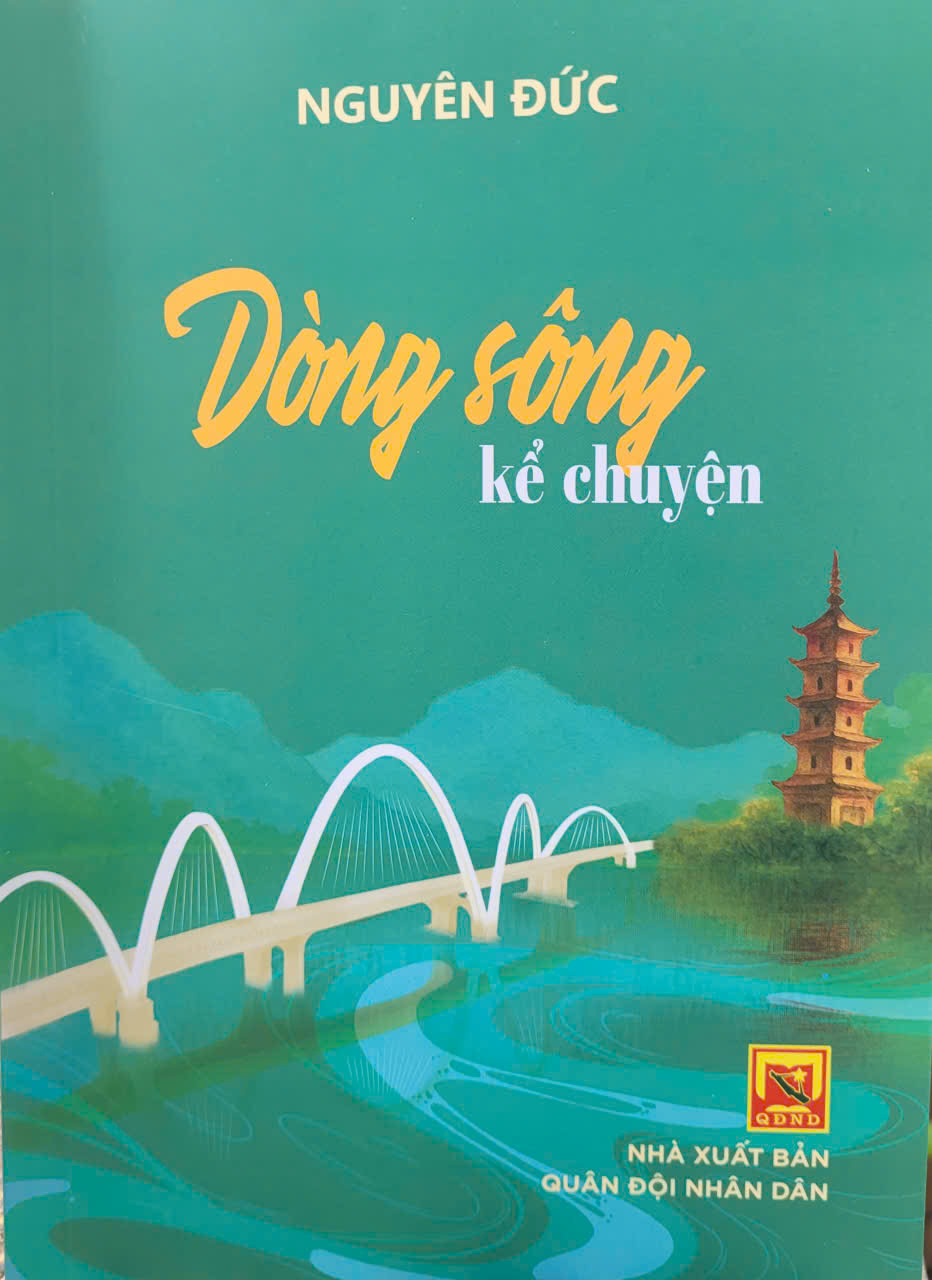 |
| Cover of the book "The River Tells Stories". |
The book is the first result of a young editor's labor and also the "sweet fruit" after many years of quietly observing, contemplating, and distilling from field trips to the countryside across the country. Each work is a delicate slice, a fresh perspective, a new feeling about cultural sites, especially the rivers that the author has been attached to and passed through. True to its name "The River Tells Stories", the author writes about rivers in a gentle, leisurely, and calm tone like a river that knows how to confide, whisper, and confide.
Opening the book, it is not difficult to find such pages.
“The story continues amidst the intoxicated autumn sky, a dream rich in poetic music in the middle of Kinh Bac land. The river flows slowly for a while, like a jade cup dropped by a beautiful fairy in the middle of the vast mulberry fields and sugarcane fields” (Duong River, always filled with nostalgia).
“The Cau River quietly passes through its individual and collective beats. Standing in the middle of that gentle river, I wonder how many secret thoughts those immense waves have hidden from the bustling trade trips of the Northern capital” (Following the majestic and poetic river).
“The boat parted the water, leaving behind long, rippling streaks like fish scales shimmering in the afternoon sun. In the silence of the rocky mountains, grass and trees, the clear green color of the Nho Que River further painted the vastness and peace of Ha Giang’s land and sky” (Magnificent, immense Nho Que).
“The boat returned when the sunset began to cover the sky. The fish in the river swam tirelessly, in the opposite direction of our movement. The crabs hovered near the coconut trees, and every time the boat passed by, they dropped down and disappeared. The river scene became quiet, leaving behind lingering emotions in the Cam Thanh coconut forest” (Returning to the Bay Mau coconut forest).
“Standing by the riverbank, I heard the gentle lapping of the shore, the chirping of birds in the treetops, all blending into the long melody of the great forest. Ayun is not only the source of life but also the soul of the land and the people here” (Basket weaving by the Ayun River).
By combining description, narration and commentary, the author's writings about rivers not only open up a new space for readers to immerse themselves in, reflect on and contemplate the multidimensional beauty of the rivers, but the tone, techniques and words imbued with folklore (folk culture) that the author has painstakingly expressed have contributed to conveying the message of love for one's roots and homeland in a polite and subtle way.
PHUC NOI
Source: https://www.qdnd.vn/van-hoa/sach/thu-thi-nhu-dong-song-ke-chuyen-847419





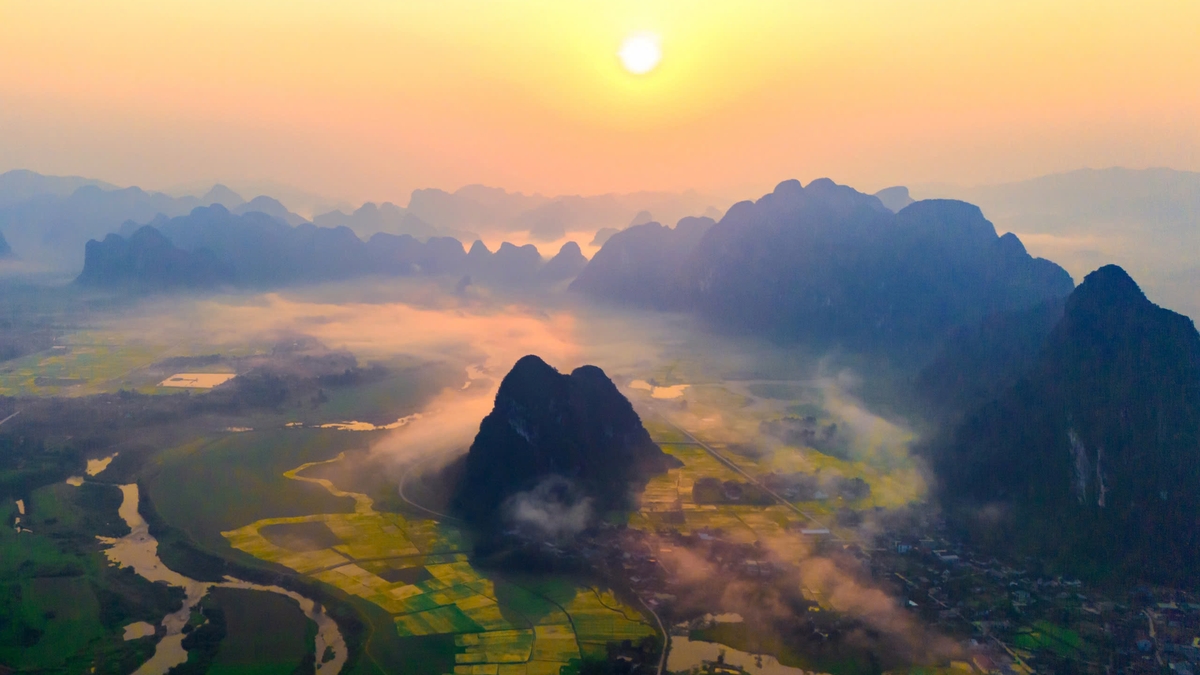






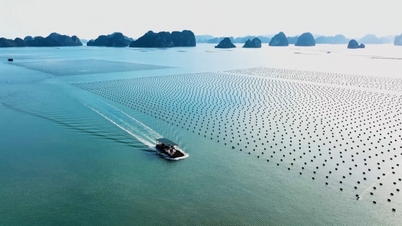





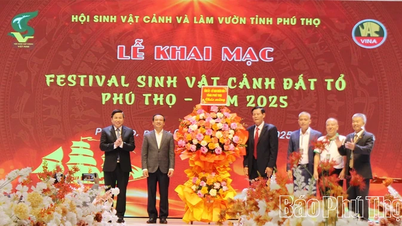

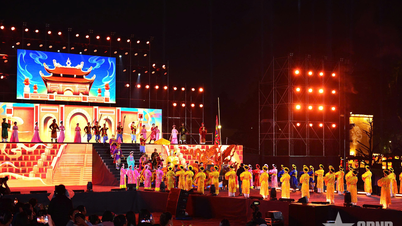


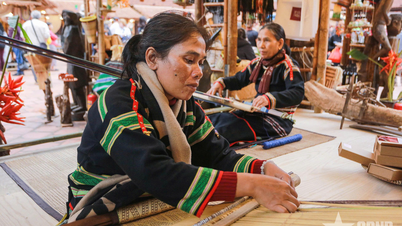
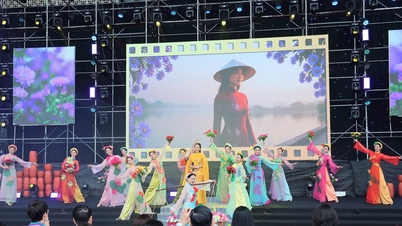

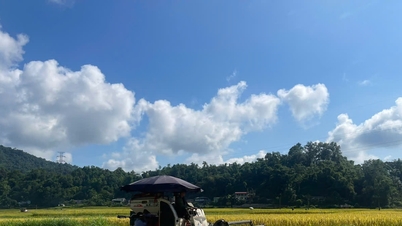

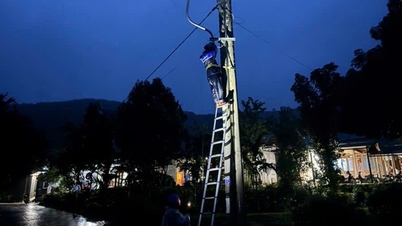




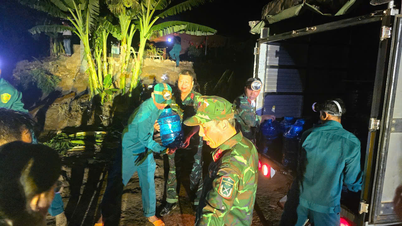
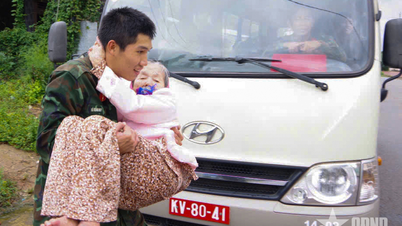
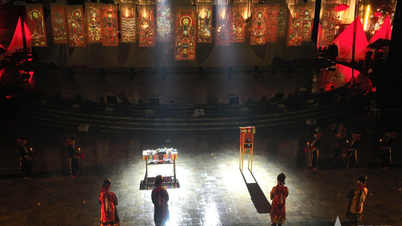
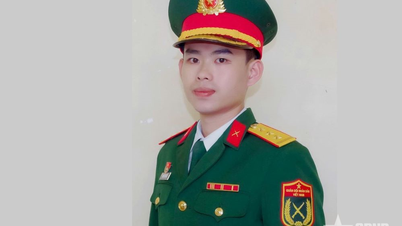

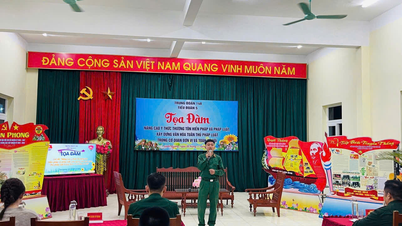











![[Video] Hue Monuments reopen to welcome visitors](https://vphoto.vietnam.vn/thumb/402x226/vietnam/resource/IMAGE/2025/11/05/1762301089171_dung01-05-43-09still013-jpg.webp)



























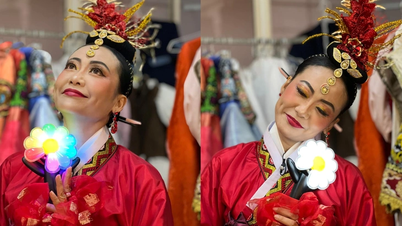
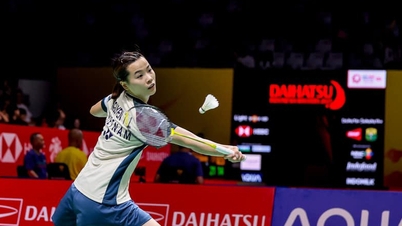







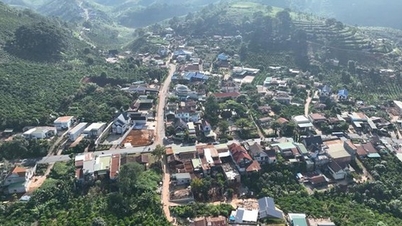
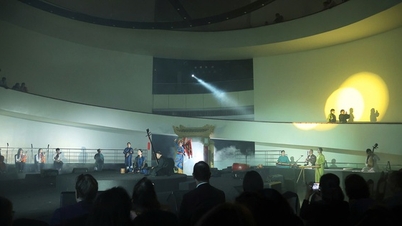



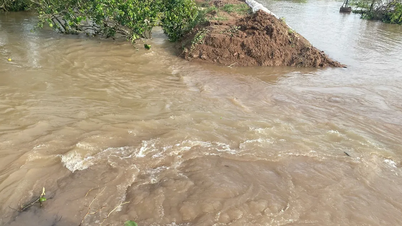



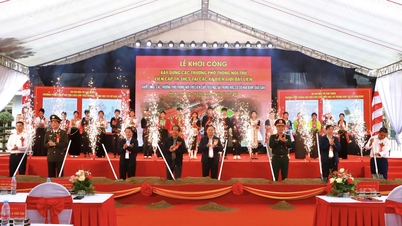
![Dong Nai OCOP transition: [Part 2] Opening new distribution channel](https://vphoto.vietnam.vn/thumb/402x226/vietnam/resource/IMAGE/2025/11/09/1762655780766_4613-anh-1_20240803100041-nongnghiep-154608.jpeg)









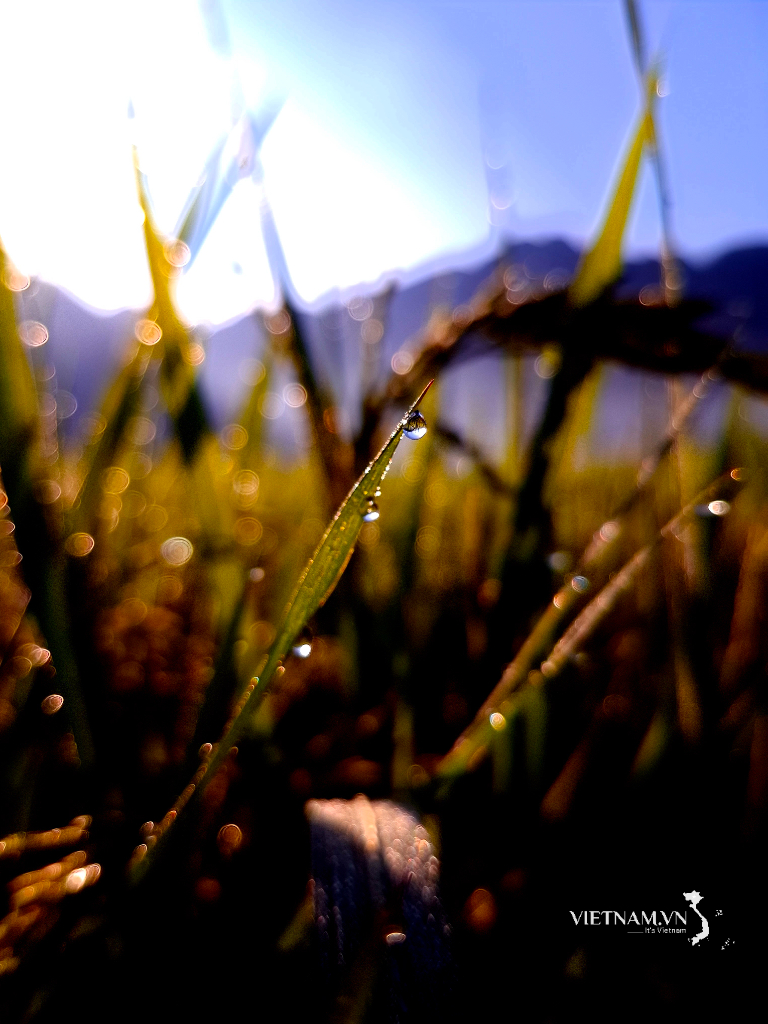


Comment (0)